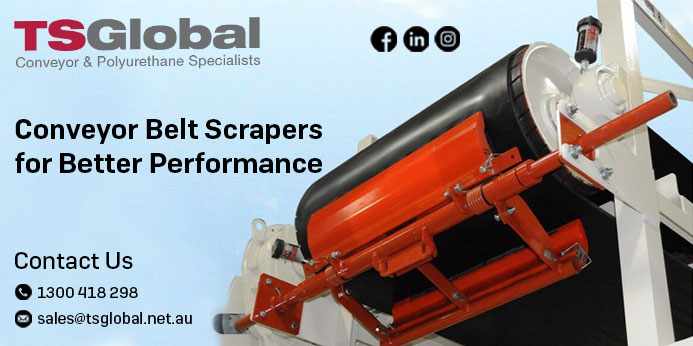
Conveyor belts are a ubiquitous presence in various industries, serving as a crucial element of operational efficiency. These seemingly simple devices have transformed the way goods are manufactured, transported, and managed. From automotive assembly lines to food processing plants, the impact of conveyor belts on modern industries is profound and far-reaching.
The Basics of Conveyor Belts
At their core, conveyor belts consist of a continuous loop of material that moves goods from one point to another. The design of a conveyor belt can vary widely depending on its application, but most are made from durable materials like rubber, plastic, or metal. They are equipped with rollers and pulleys that facilitate the movement of items along a predetermined path.
Enhancing Efficiency
One of the primary ways Conveyor Belt Scraper revolutionize industries is by enhancing efficiency. Traditional manual labor for moving goods is not only time-consuming but also prone to human error and injury. Conveyor belts automate the transportation process, significantly reducing the time required to move products from one location to another.
In manufacturing, for instance, conveyor belts streamline assembly processes. Workers can focus on specific tasks without having to move around the workspace. This leads to improved productivity, as products move seamlessly from one workstation to the next. The automotive industry, in particular, benefits greatly from this system, where vehicles are assembled on a moving line, ensuring that every component is added in a consistent and timely manner.
Improving Safety
Safety is a critical concern in any industry, and conveyor belts contribute to safer work environments. By minimizing the need for manual handling, they reduce the risk of workplace injuries. Workers are less likely to suffer from strains or accidents related to lifting heavy objects. Moreover, modern conveyor systems often come equipped with safety features such as emergency stops and guards, ensuring that employees can operate machinery without excessive risk.
Flexibility in Design
The adaptability of conveyor belts is another factor that revolutionizes their application across various industries. Conveyor systems can be customized to fit specific needs, whether it involves altering the length, width, or incline of the belt. This flexibility allows businesses to design layouts that maximize space and efficiency.
For example, in the food industry, conveyor belts can be designed with sanitation in mind. Many systems are made from materials that are easy to clean and maintain, helping companies adhere to health regulations while improving production rates. In warehousing, conveyor belts can be integrated with sorting systems to automate the handling of packages, further enhancing logistics operations.
Cost-Effectiveness
While the initial investment in conveyor belt systems can be significant, the long-term cost savings are substantial. By automating transportation and reducing the reliance on manual labor, companies can lower their operational costs. Increased efficiency means faster production times, which can lead to higher output and revenue.
Additionally, conveyor belts can reduce waste by ensuring precise handling of materials. For example, in packaging, conveyor systems minimize the risk of product damage during transport, leading to less waste and greater customer satisfaction.
The Future of Conveyor Belts
As industries continue to evolve, so too will conveyor belt technology. Innovations such as smart conveyor systems equipped with sensors and IoT (Internet of Things) capabilities are beginning to emerge. These advanced systems can monitor performance in real-time, providing valuable data that can be used to optimize processes further. Predictive maintenance is another area where technology is enhancing conveyor belt efficiency, allowing for proactive repairs before issues arise.
Moreover, as sustainability becomes a priority across sectors, conveyor belts are also evolving. Companies are exploring eco-friendly materials and energy-efficient systems to reduce their carbon footprint.
Conclusion
In summary, conveyor belt have fundamentally changed the landscape of modern industries. By enhancing efficiency, improving safety, providing design flexibility, and offering cost-effectiveness, they play a crucial role in the smooth operation of manufacturing and logistics. As technology advances, the future of conveyor belts looks promising, with innovations set to further enhance their capabilities. In a world increasingly driven by efficiency and productivity, conveyor belts will undoubtedly continue to be at the forefront of industrial transformation.

















.jpeg)


Write a comment ...